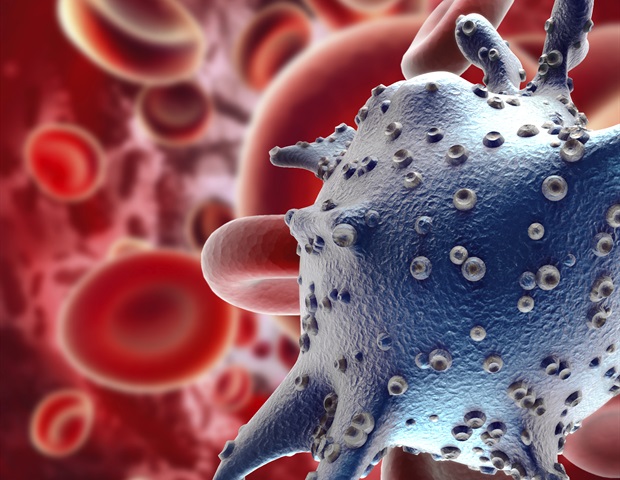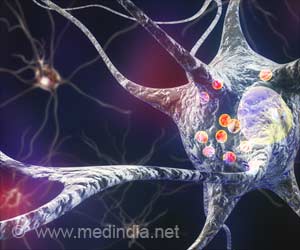A new study from Spain suggests that almost 40% of hormone-positive breast cancer cases in postmenopausal women could be linked to excess body fat....
Vous n'êtes pas connecté
- English
- Français
- عربي
- Español
- Deutsch
- Português
- русский язык
- Català
- Italiano
- Nederlands, Vlaams
- Norsk
- فارسی
- বাংলা
- اردو
- Azərbaycan dili
- Bahasa Indonesia
- Հայերեն
- Ελληνικά
- Bosanski jezik
- українська мова
- Íslenska
- Türkmen, Түркмен
- Türkçe
- Shqip
- Eesti keel
- magyar
- Қазақ тілі
- Kalaallisut ; kalaallit oqaasii
- Lietuvių kalba
- Latviešu valoda
- македонски јазик
- Монгол
- Bahasa Melayu ; بهاس ملايو
- ဗမာစာ
- Slovenščina
- тоҷикӣ ; toğikī ; تاجیکی
- ไทย
- O'zbek ; Ўзбек ; أۇزبېك
- Tiếng Việt
- ភាសាខ្មែរ
- རྫོང་ཁ
- Soomaaliga ; af Soomaali
 Maroc - NEWS.MEDICAL.NET - A la Une - 15/Oct 17:52
Maroc - NEWS.MEDICAL.NET - A la Une - 15/Oct 17:52
Scripps Research identifies binding site on challenging cancer protein
Hormone-driven cancers, like those of the breast and prostate, often rely on a tricky-to-target protein called Forkhead box protein 1 (FOXA1). FOXA1 mutations can enable these types of cancers to grow and proliferate.
Articles similaires
Breast cancer no longer age-restricted threat
Breast cancer is one of the most common cancers affecting women worldwide. It occurs when cells in the breast grow uncontrollably, forming a tumor....
Obesity Could Cause 40% of Hormone-Positive Breast Cancers in Older Women
WEDNESDAY, Oct. 16, 2024 -- Obesity is a more powerful driver of breast cancer than previously thought, a new study suggests. About 40% of...
Editorial Comment: We need to pay more attention to cancer prevention
Cancer, or more precisely a range of cancers, are becoming more common as a cause of death in Zimbabwe, often because people are not dying sooner of...
The Role Of Hormones In Weight Gain And Metabolism
Leptin, often called the "satiety hormone," is produced by fat cells and helps regulate energy balance by inhibiting hunger.
SU2C announces grants to support cutting-edge research in a variety of cancers
Stand Up To Cancer (SU2C) today announced grants to several teams of leading cancer investigators in support of cutting-edge research in a variety of...
Prostate Cancer: Higher Incidence In Black Men Highlights Urgent Need For Increased Awareness And Support
Prostate cancer is one of the most common cancers affecting men worldwide. According to the World Health Organisation (WHO), in
Liver X Receptor's Role in Brain Health
Two types of hormone receptors interact with each other to maintain brain health and it can prevent neurodegenerative diseases. h2Hormone...
New trial shows felzartamab reduces proteinuria in IgA nephropathy patients
IgA nephropathy (IgAN) is an autoimmune kidney disease driven by immune cells that express a protein called CD38 on their surface.
FDA Approves Itovebi for Locally Advanced, Metastatic Breast Cancer
WEDNESDAY, Oct. 16, 2024 -- The U.S. Food and Drug Administration approved Itovebi (inavolisib), in combination with palbociclib (Ibrance) and...
Les derniers communiqués
-
Aucun élément



